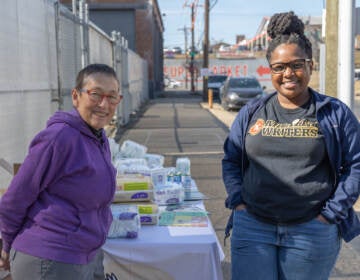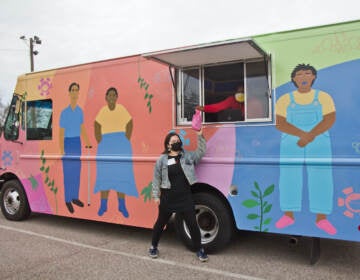Summer arrives and Philly heat plan is still work-in-progress
A plan for cooling centers, which in the past included libraries and swimming pools, has not yet been finalized. Pools will not open this year and libraries remain closed.
This story originally appeared on NBC10.
Hot weather has already arrived as this summer, which started Saturday, is expected to be hotter than usual.
But a plan to replace some or all of the traditional cooling centers in Philadelphia remains unfinished, city officials said Tuesday.
Libraries and swimming pools have in years past been an important part of the city’s response to getting residents without air conditioning into safe places during heat waves.
But COVID-19 and the fear of having people gather in one place, particularly the most vulnerable populations, has caused health officials to rethink the cooling center approach. None of the city’s swimming pools will open this summer. Libraries across Philadelphia remain closed.
“The City has not announced a plan for responding to Heat Health Emergencies,” a spokesman for the city’s Department of Public Health said Tuesday. “Given that — at this point — gathering at-risk people in one place is counter to the City’s recommendations for COVID, we continue to explore other options.”
The risks and challenges are twofold. High heat is a huge threat for infants and children up to fours years old and to people 65 and older, according to the Centers for Disease Control and Prevention. But letting people cool off in an enclosed space also risks the spread of COVID-19, to which older people are especially susceptible.
☀️ It’s hot out there, Philly! If you see someone on the street who needs shelter or other homeless services, call 215-232-1984 to request outreach anytime. #StayCoolPHL https://t.co/GWe4zlEKH1
— City of Philadelphia (@PhiladelphiaGov) June 23, 2020
Managing Director Brian Abernathy said an announcement is expected soon for how the city will accommodate vulnerable residents in a heat wave.
“We didn’t just wake up yesterday and realize it was going to get hot,” Abernathy said. “We have folks working on this issue and hope to have an announcement shortly.”
The health department is working with other agencies to determine if there is a way to safely open cooling centers in the event of a heat health emergency, Garrow said earlier this month, but no concrete plan has yet been made, nor have alternatives – like New York City’s program allowing low-income residents to apply for financial help to install an air conditioner or fan – been offered.
“I think this is something that we know is an issue based on what we have traditionally seen in the city. We know that certain neighborhoods in the city are hotter due to the urban heat effect. We know that many of our residents can’t afford and don’t have air conditioners,” Councilwoman Jamie Gauthier, who represents the 3rd District, said.
The Philadelphia Center for Aging estimates 39% of people 60 and older in Philadelphia live alone.
Stephen Merrill, a registered nurse who works in program management at the PCA, said seniors and anyone checking on them should be aware of symptoms like heavy sweating, fatigue, dizziness, headache, nausea and a quick pulse. He also stressed that people should stay hydrated by drinking water even when they don’t feel thirsty and keep windows open if using a fan or risk creating a “convection oven” effect in their home.
Philadelphia likely won’t be able to provide free air conditioning units or fans for people, largely due to the already tight budget constraints caused by the coronavirus outbreak, but whatever solution officials do come up with will have to be “creative,” Gauthier told NBC10 earlier in June.
“We need to be creative, and whatever plan we end up with is gonna have to be mindful of social distance requirements and is going to have to be accessible to people throughout the city and accessible particularly in the neighborhoods where we know that heat is a big issue,” she said.
 NBC10 is one of dozens of news organizations producing BROKE in Philly, a collaborative reporting project on solutions to poverty and the city’s push towards economic justice. Follow us at @BrokeInPhilly.
NBC10 is one of dozens of news organizations producing BROKE in Philly, a collaborative reporting project on solutions to poverty and the city’s push towards economic justice. Follow us at @BrokeInPhilly.
WHYY is your source for fact-based, in-depth journalism and information. As a nonprofit organization, we rely on financial support from readers like you. Please give today.





